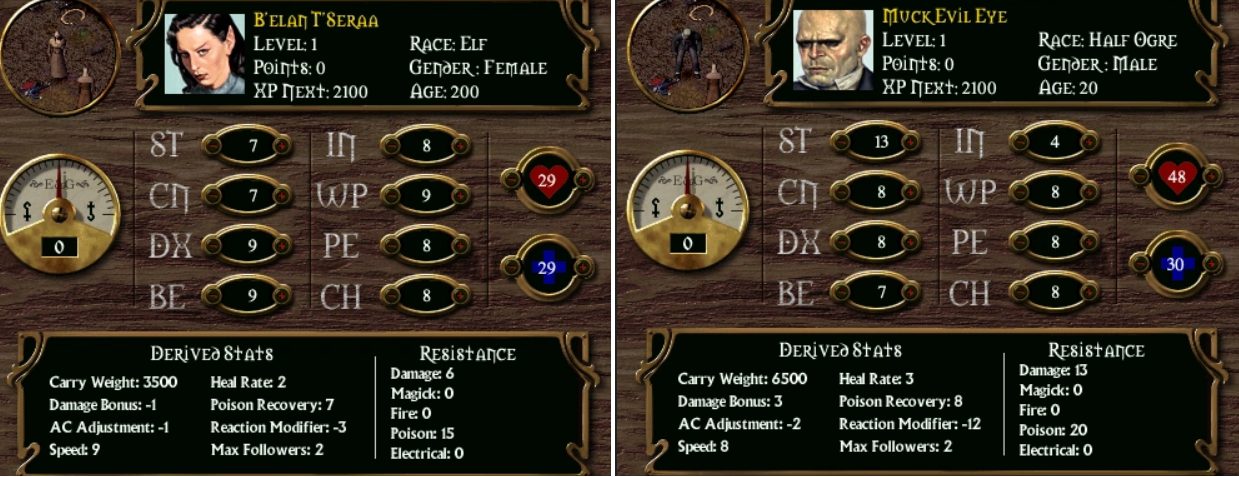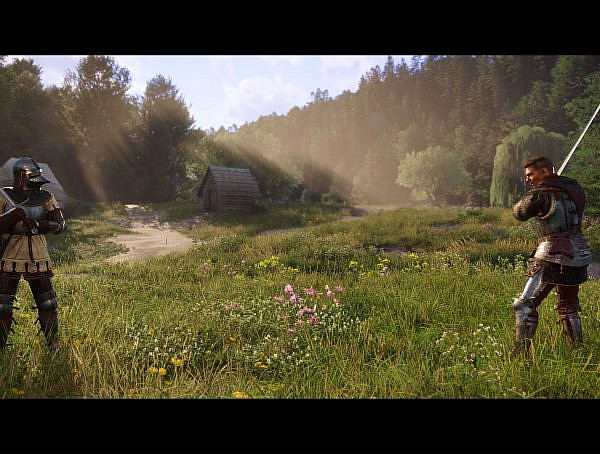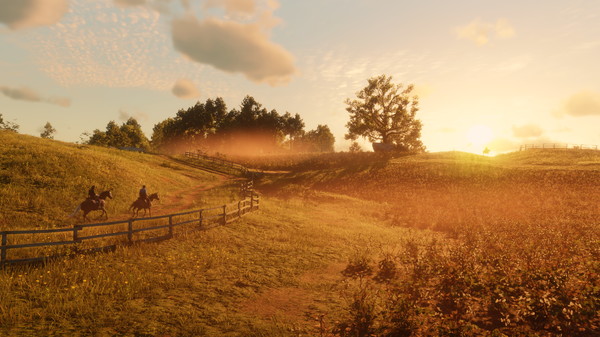In their 2023 article “Background Checks: Disentangling Class, Race, and Gender in CRPG Character Creators” Michael Iantorno and Mia Consalvo explore how identity construction through choices available in character creation is made in Arcanum: Of Steamworks and Magick Obscura (2001) and Dragon Age: Origins (2009). Their primary finding through this analysis is that both games’ character creators strongly reify and repeat existing stereotypes and tropes on gender, race, and socioeconomic class that date back to J. R. R. Tolkien and are still perpetuated in fantasy media today.
Typical to CRPGs (Computer Role-Playing Games), in both Arcanum and Dragon Age your characters’ background and skills affect gameplay in certain ways. Certain races or genders cannot perform some roles, races have differing attributes and skills, and your character might come across different responses to their race, gender, or class from NPCs. In Arcanum a non-male gender is all but erased completely in character creation: only the human race has a female in-game model at all.
Fictitious races are either ugly brutes (half-orcs and half-ogres), scheming thieves and hagglers (gnomes) or beautiful yet weak and fragile (elves).
Dragon Age doesn’t share this gendered restriction and allows any gender for any gamic class, but expresses limitations and consequences in player race, instead. Humans are adaptable and skillful in whatever path they choose, but dwarves and elves are designed and optimized to only succeed in certain ways: dwarves are sturdy, either nobles or commoners, who can’t do magic and elves are nature-loving waifs who excel in magic but are looked down upon by society. This is how non-humans are often branded as somehow lower class, unintelligent, unattractive and/or unskilled.
Iantorno and Consalvo use interface study, developed in 2006 by Consalvo & Dutton, as the starting point to their analysis. They carry out their analysis by creating several different characters and playing through the introductory parts of both games while collecting notes. The findings from these game logs are grounded by referencing the paratexts of Arcanum and Dragon Age: these include the games’ official strategy guides, manuals, and developer’s comments online, along with unofficial resources such as YouTube walkthroughs, Wiki’s, and the games’ FAQs.
Socioeconomic class specifically is under-researched as part of identity construction in media and similarly character creators – which directly provide a look into how the developers construct class, race, and gender in their game’s world – have yet to be widely studied. Iantorno and Consalvo posit that character creators in both Arcanum and Dragon Age effectively exemplify the way identity is constructed in fantasy media: both games rely on well-established discourses and continue to perpetuate and repeat problematic tropes by associating real life socioeconomic class markers and racial stereotypes with fictitious races like dwarves and gnomes. These representations hold power and, following wide acceptance, establish themselves in various media with ease. Even when said to be of completely otherworldly origins, fantasy representations gain legibility only in reference to our reality – and they can’t be claimed to be harmless.
Reference: Iantorno, M., & Consalvo, M. (2023). Background Checks: Disentangling Class, Race, and Gender in CRPG Character Creators. Games and Culture, 18(8), 979-1003. https://doi.org/10.1177/15554120221150342
Picture credit: banner image a screenshot from Dragon Age: Origins taken by the author. Picture of Arcanum character sheets from the game’s fandom Wiki https://arcanum.fandom.com/wiki.
A perpetually talkative being and a fan of all things queer, weird, and transgressive. Enjoys CRPG’s, playing MMO’s alone and games modded beyond recognizablity. When not tending to pixel chickens or traversing some post-apocalyptic landscape, they’re crocheting stuffed animals. Has never played Uno and has no plans to do so.
You might also like
More from Game Research Highlights
How do you want to do this? – A look into the therapeutic uses of role-playing games
Can playing RPGs contribute positively to your wellbeing? A recent study aims to find out how RPGs are being used …
Eldritch horrors and tentacles – Defining what “Lovecraftian” is in games
H.P. Lovecrafts legacy lives today in the shared world of Cthulhu Mythos and its iconic monsters. Prema Arasu defines the …
Are Souls Games the Contemporary Myths?
Dom Ford’s Approaching FromSoftware’s Souls Games as Myth reveals the Souls series as a modern mythology where gods fall, desires …
















